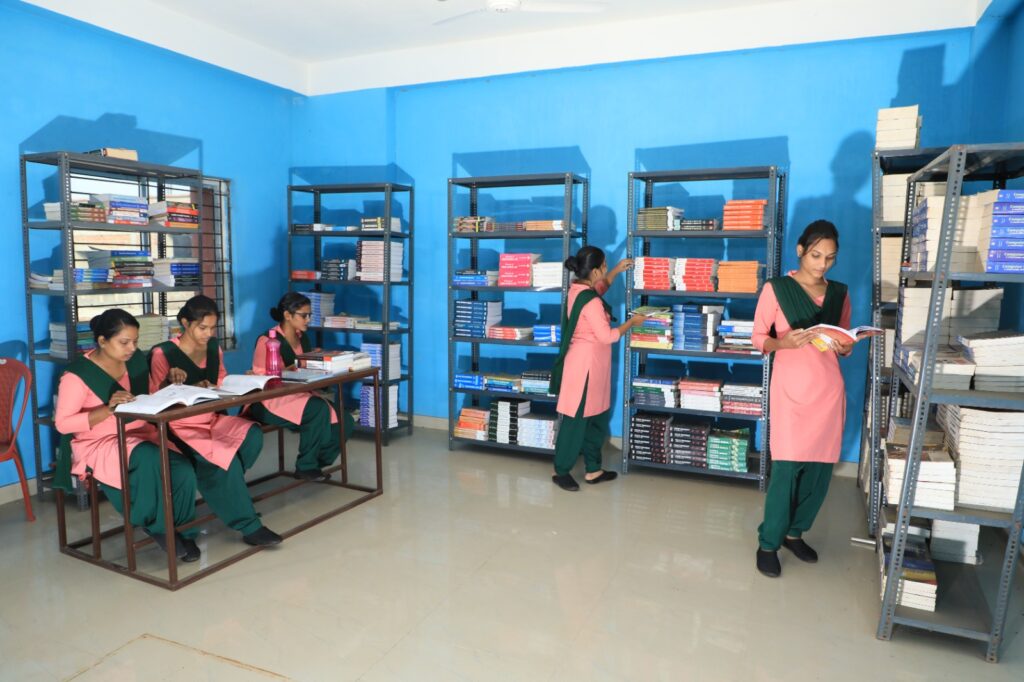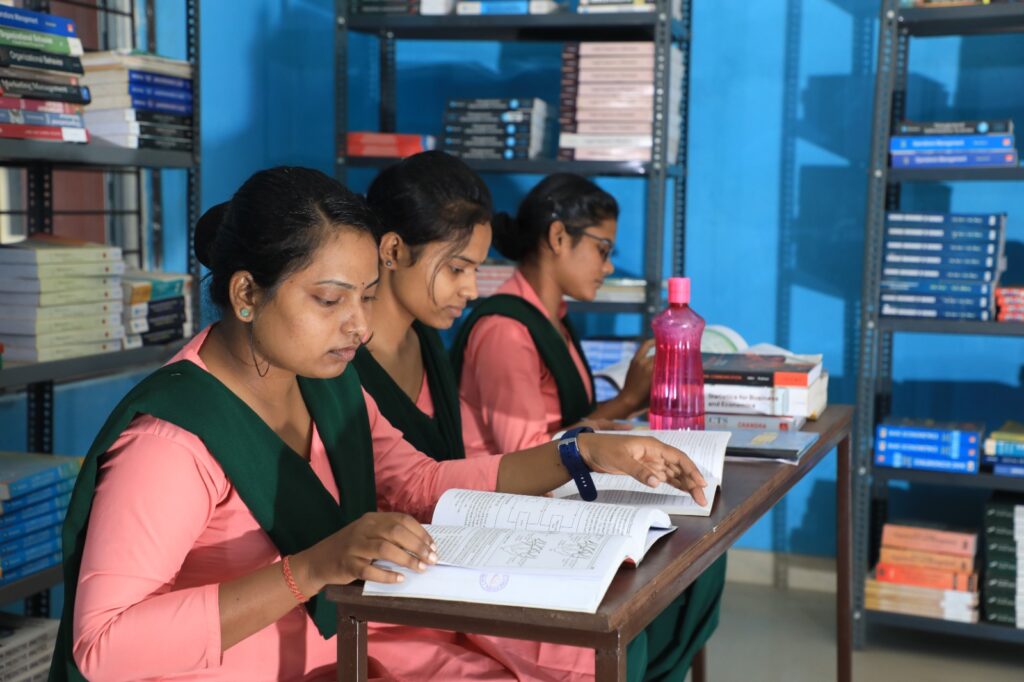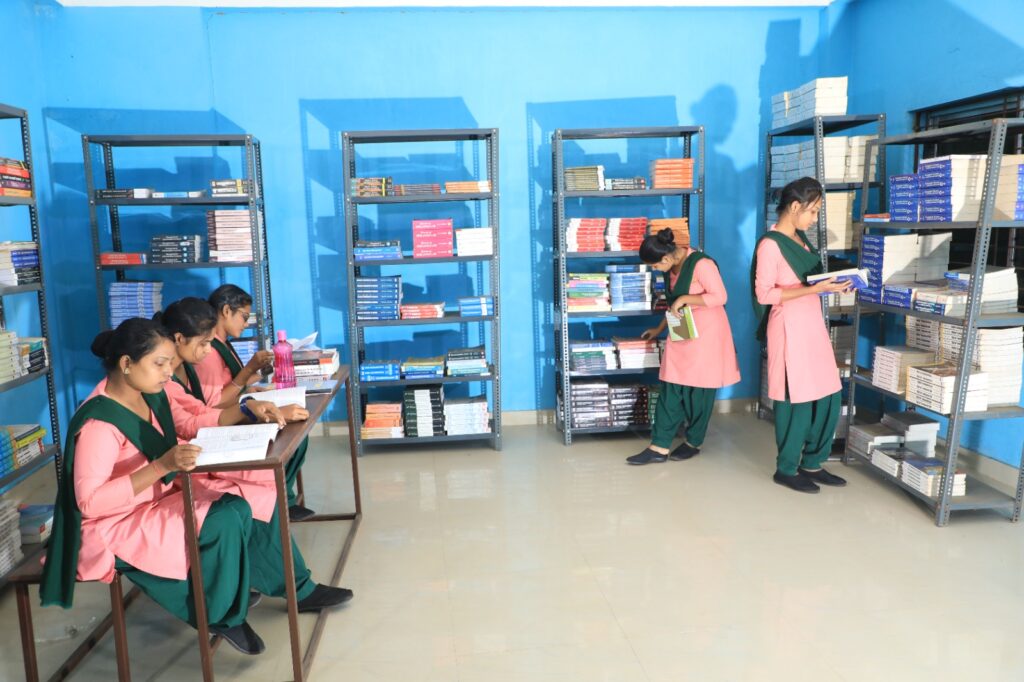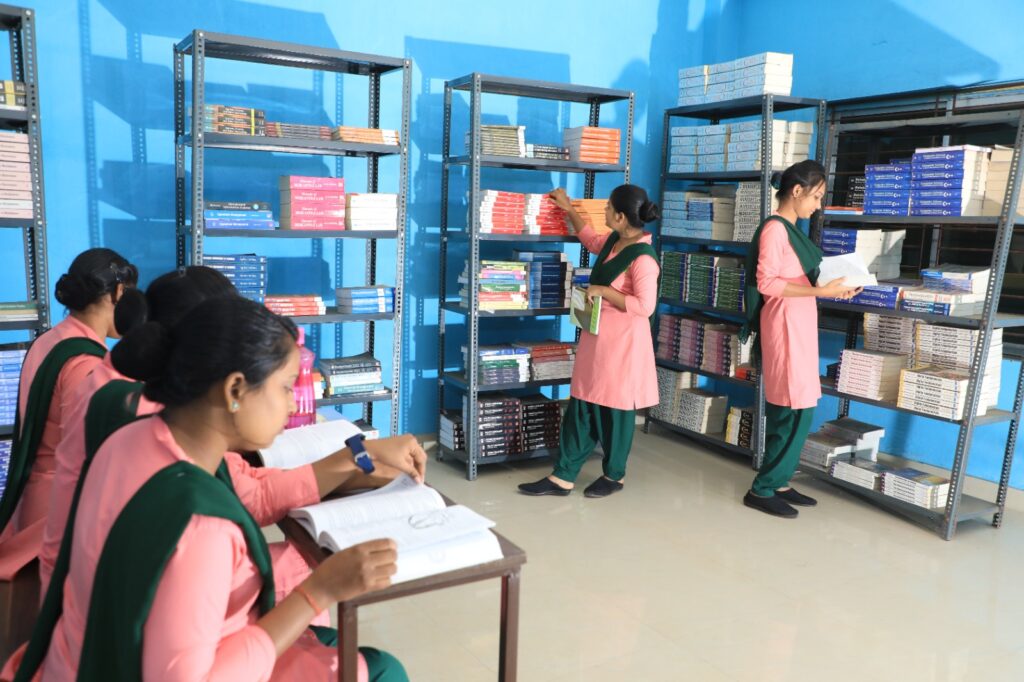Empowering Careers, Transformative Healthcare Education.
General Nursing & Midwifery (GNM)
General Nursing & Midwifery
General Nursing and Midwifery (GNM) is a comprehensive diploma program in nursing that equips individuals with the necessary skills and knowledge to provide quality healthcare services. This course is designed to train students in various aspects of nursing and midwifery, preparing them to become competent and compassionate healthcare professionals.
Overview:
The ANM course is a diploma-level program that typically spans a duration of 1 to 2 years, depending on the country and educational institution. It is specifically crafted to equip students with the fundamental skills needed to provide basic healthcare services, with an emphasis on maternal and child health.
The GNM course typically spans three and a half years, divided into both theoretical and practical training. This duration may vary slightly depending on the specific curriculum of the institution offering the program.
Candidates seeking admission to the GNM course generally need to have completed their 10+2 education with a science background. Some institutions may also have specific entrance exams or criteria for admission.

Curriculum
The GNM curriculum is designed to cover a wide range of topics to ensure that graduates are well-prepared for the diverse challenges of nursing and midwifery. Key components of the curriculum include:
- Fundamental Nursing: Basic nursing care, patient hygiene, and infection control.
- Medical-Surgical Nursing: Care for patients with medical and surgical conditions.
- Midwifery: Training in handling childbirth and providing care to mothers and newborns.
- Child Health Nursing: Pediatric nursing, focusing on the unique healthcare needs of infants and children.
- Community Health Nursing: Emphasis on healthcare in community settings, preventive care, and health promotion.
- Mental Health Nursing: Understanding and addressing the mental health needs of patients.

Clinical Training
A significant portion of the GNM course involves hands-on clinical training. Students gain practical experience in hospital settings, community health centers, and other healthcare facilities. This practical training is essential for the development of clinical skills and the application of theoretical knowledge in real-world scenarios.

Career Opportunities
Upon successful completion of the GNM course, graduates can pursue various career paths in hospitals, clinics, community health centers, and other healthcare settings. They may work as staff nurses, midwives, or pursue further education to specialize in areas such as critical care nursing, pediatric nursing, or psychiatric nursing.

Professional Registration
After completing the GNM course, individuals often need to register with the respective nursing councils or regulatory bodies to practice as registered nurses or midwives.
Classrooms
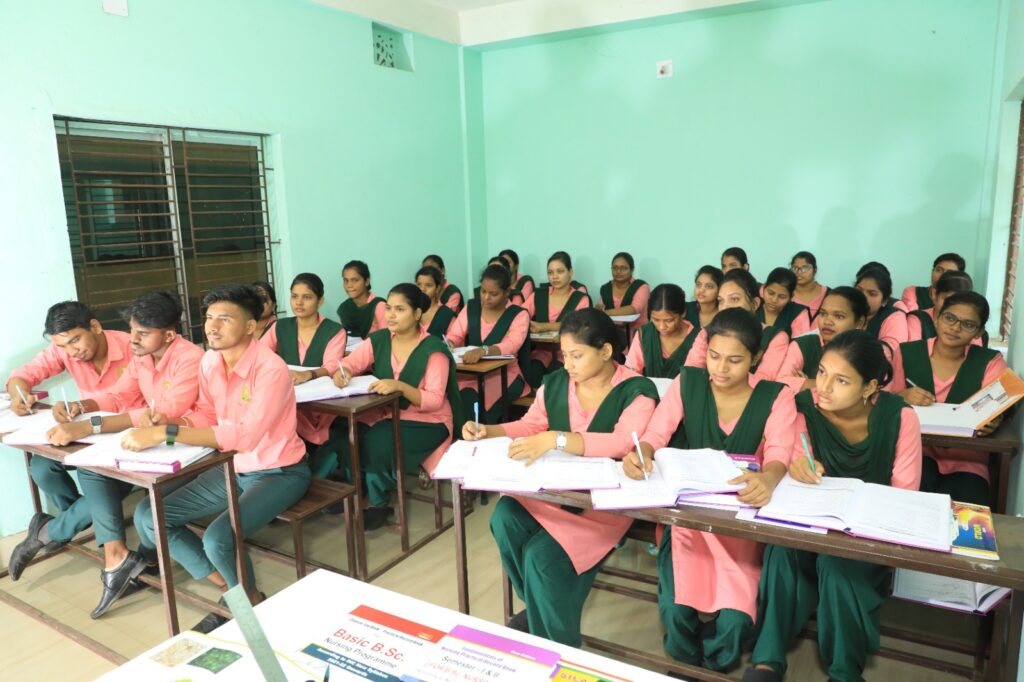

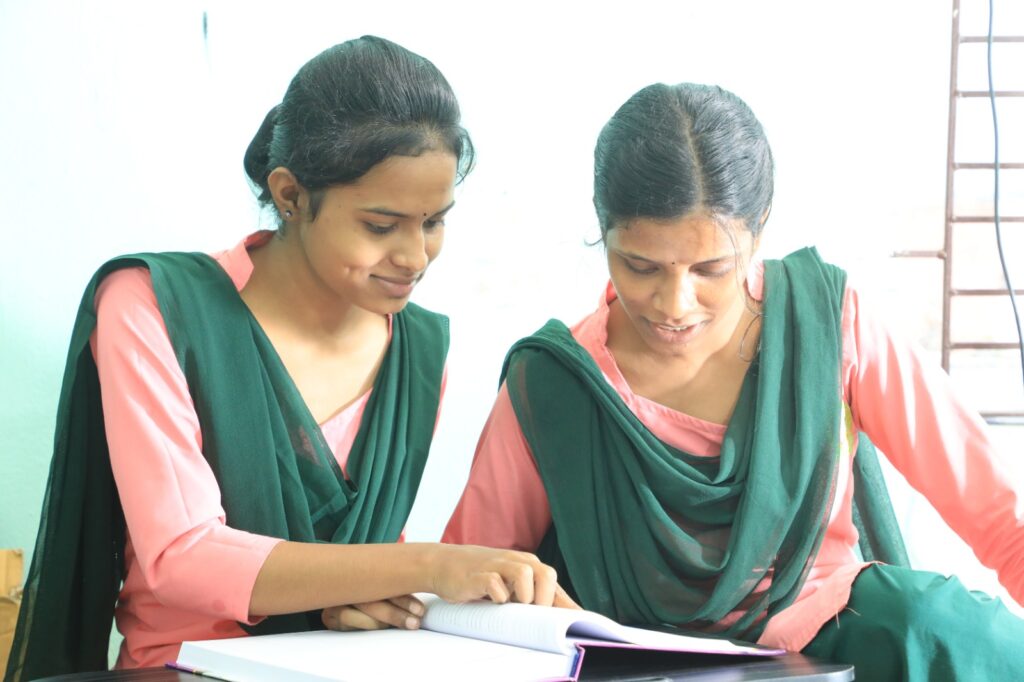
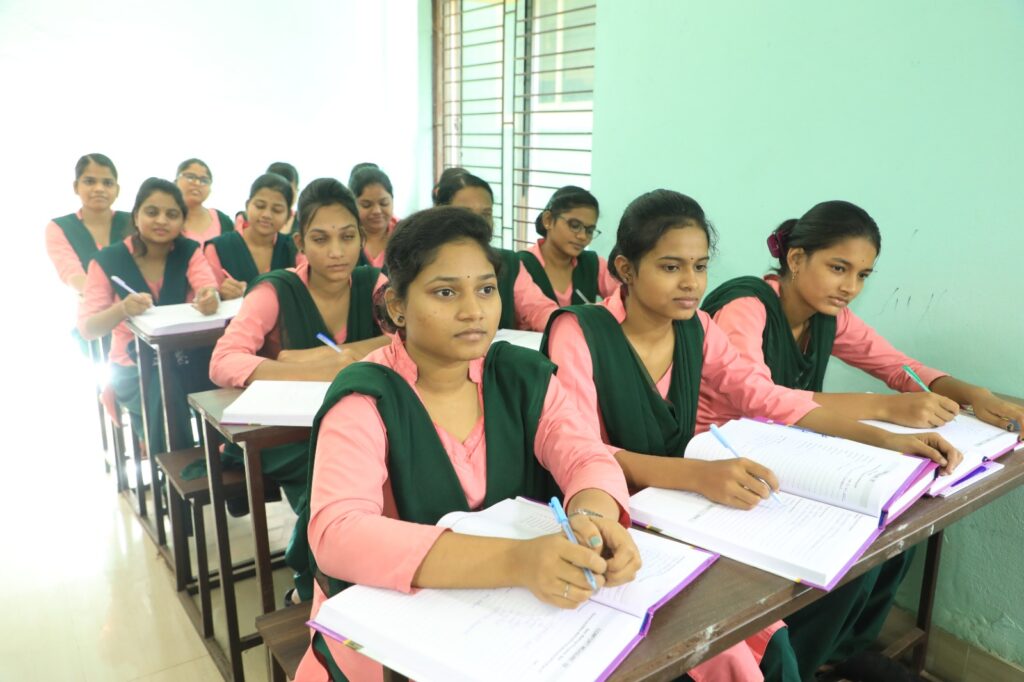
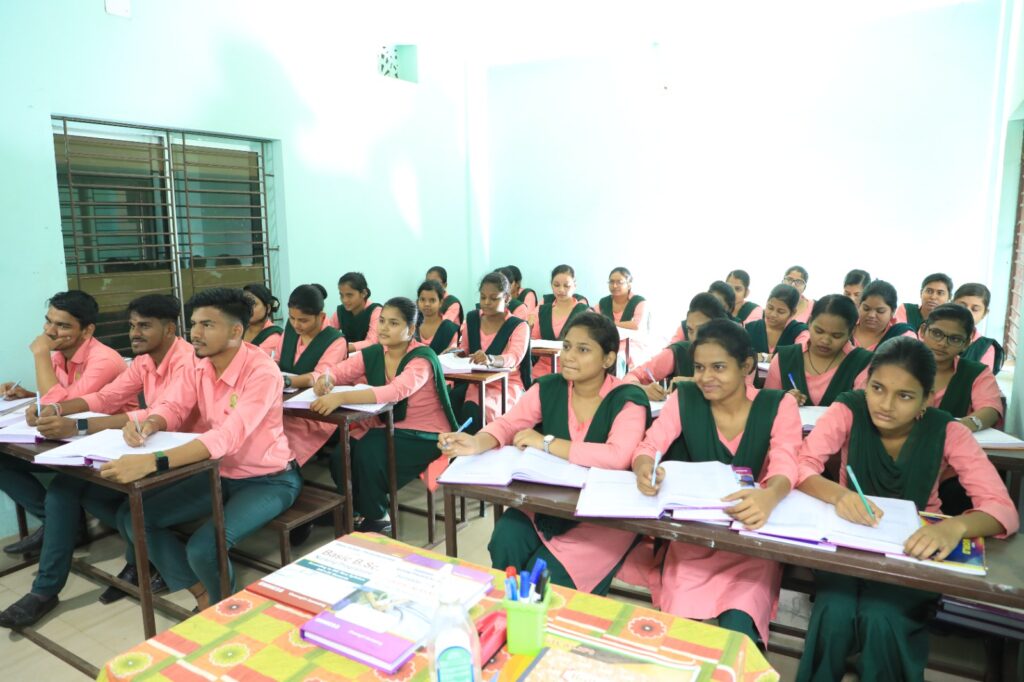
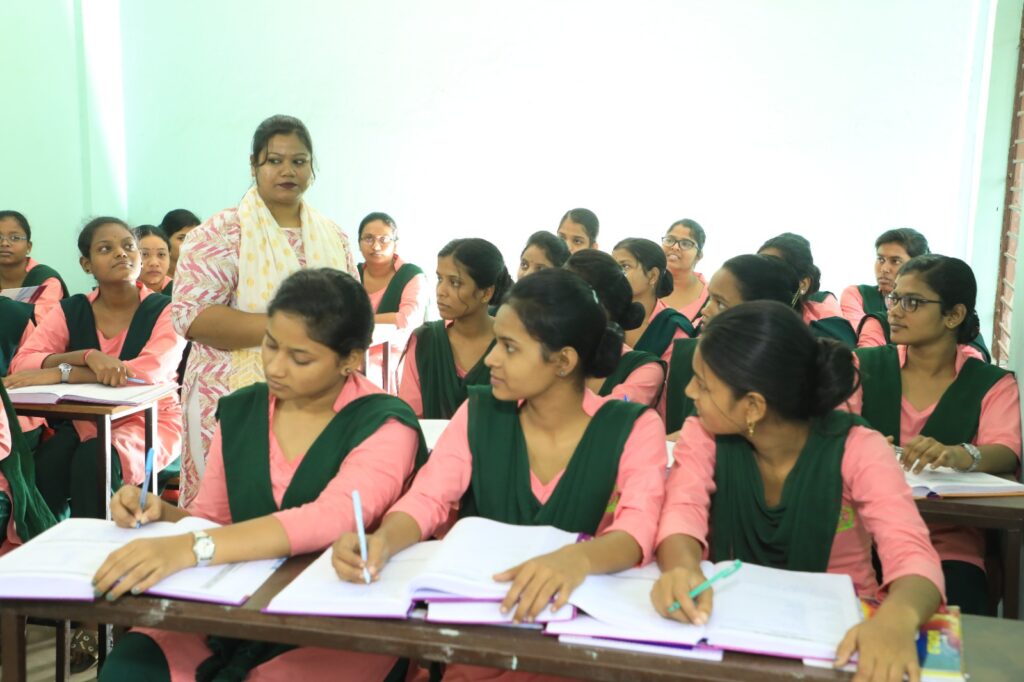
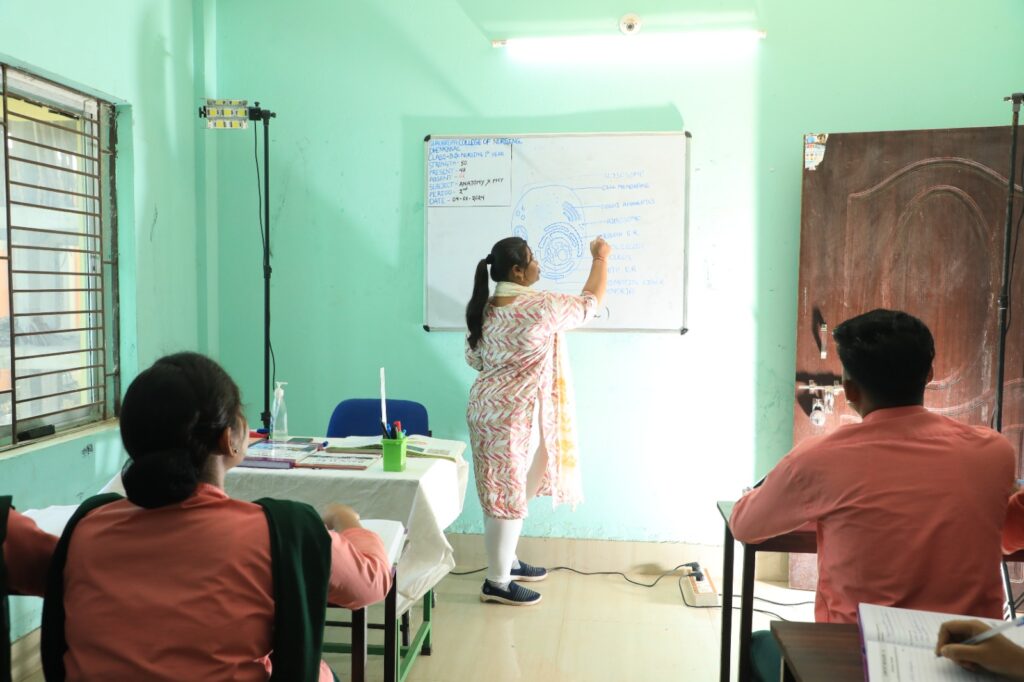
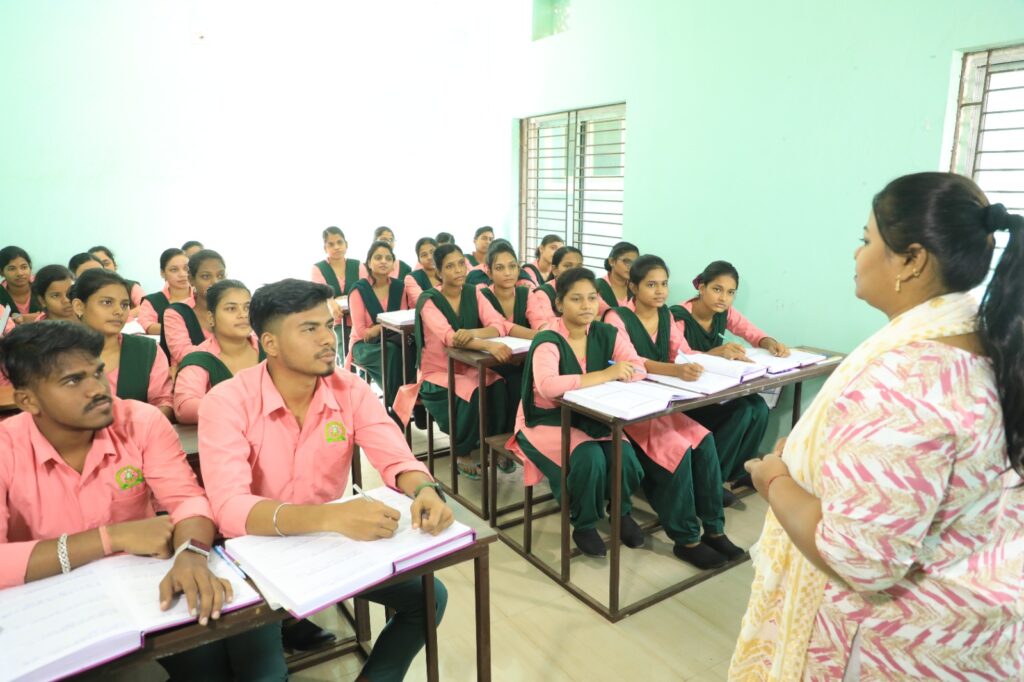
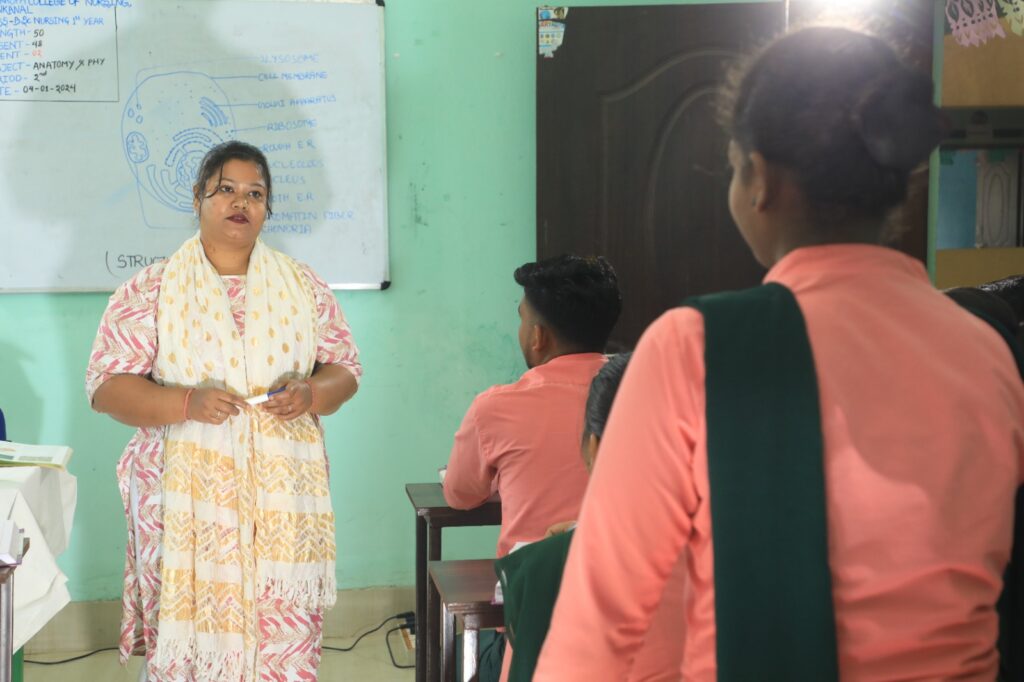
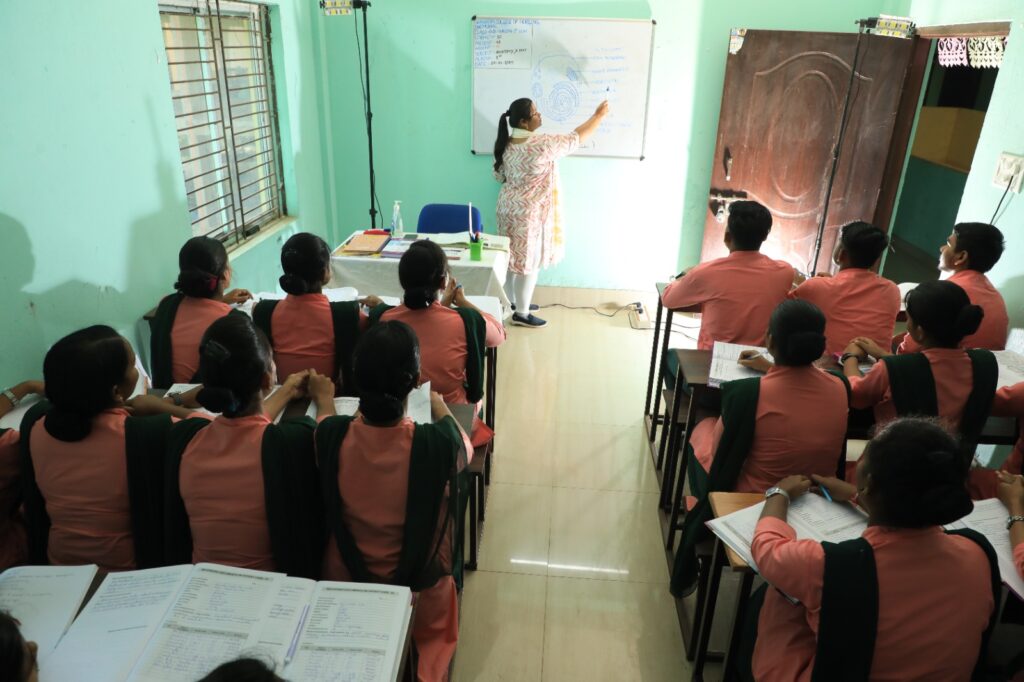
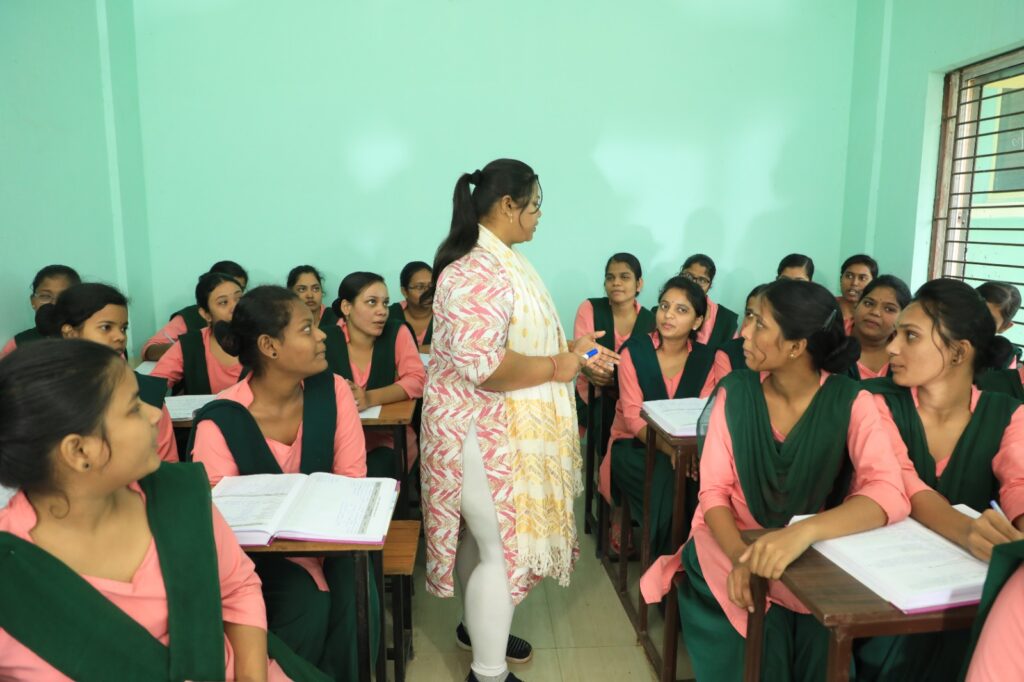
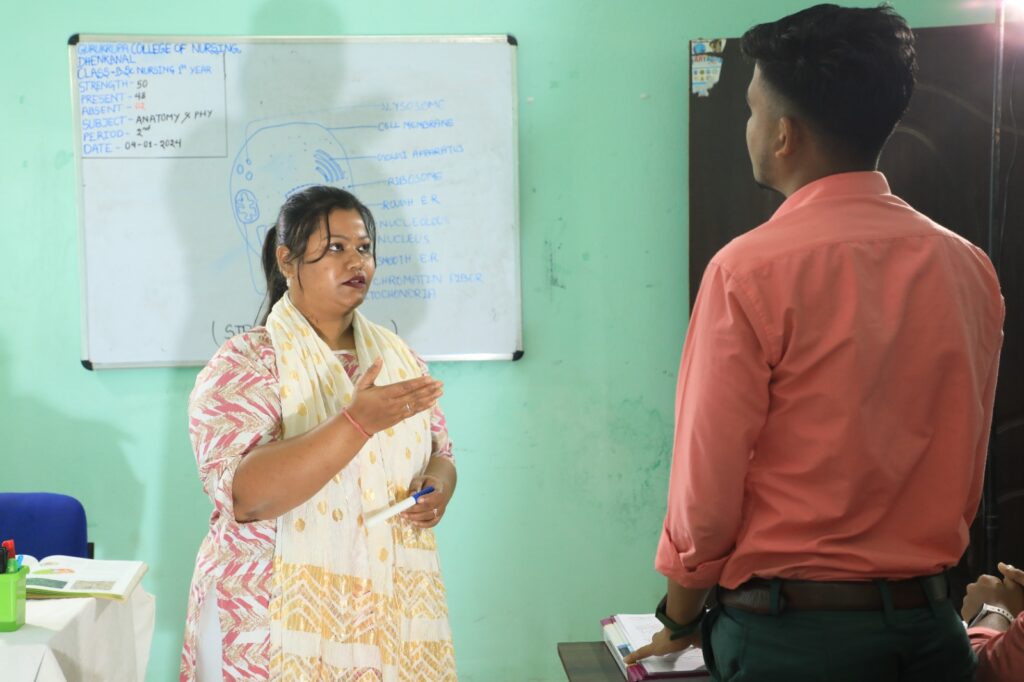
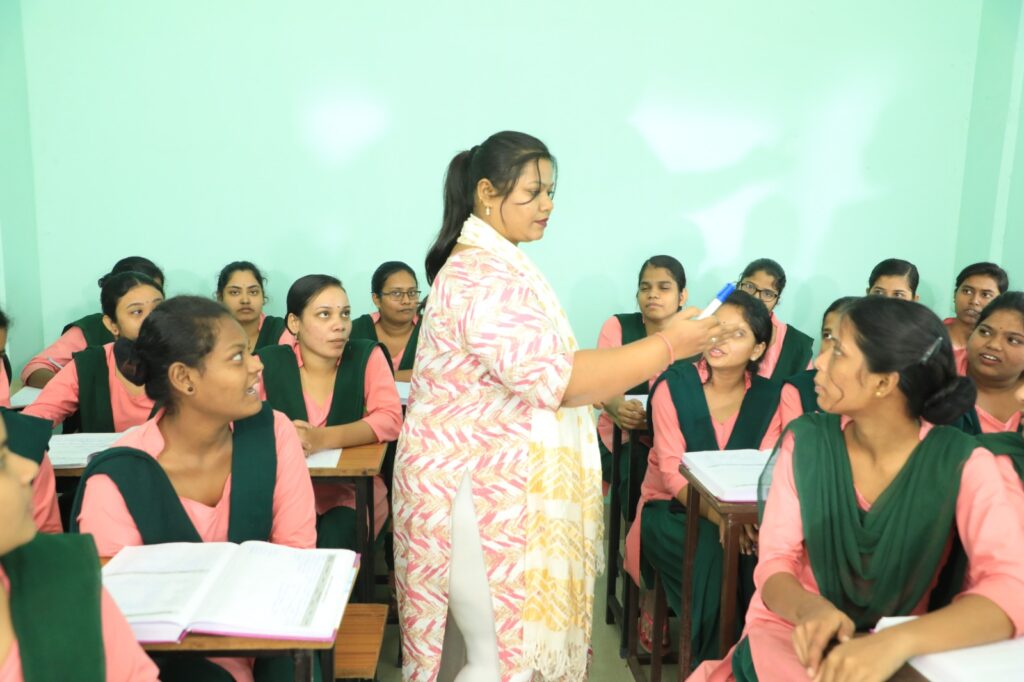
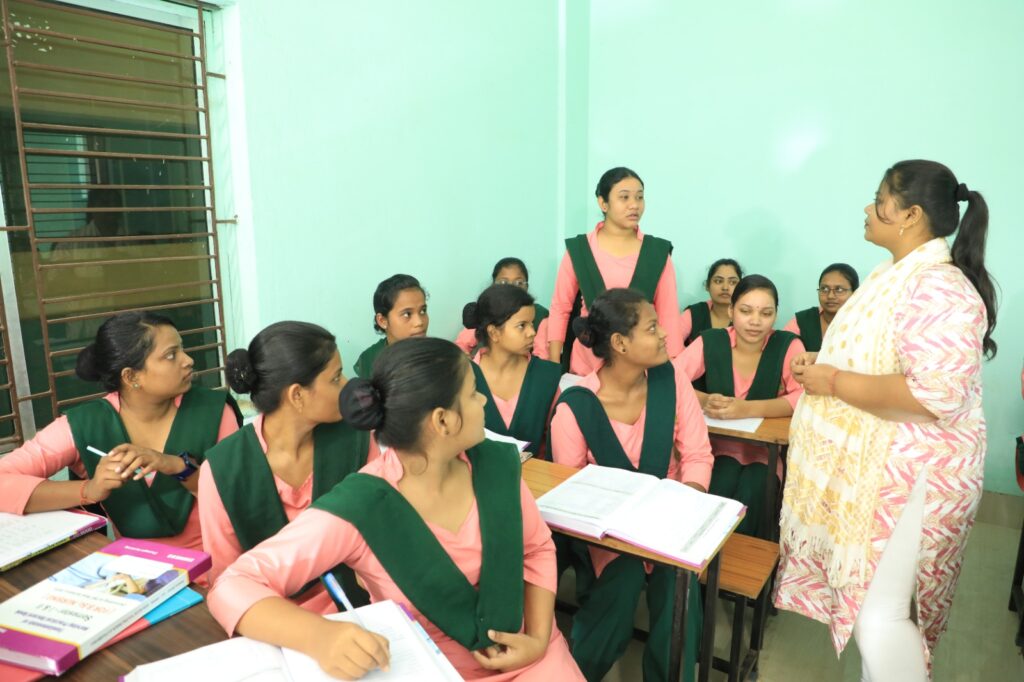
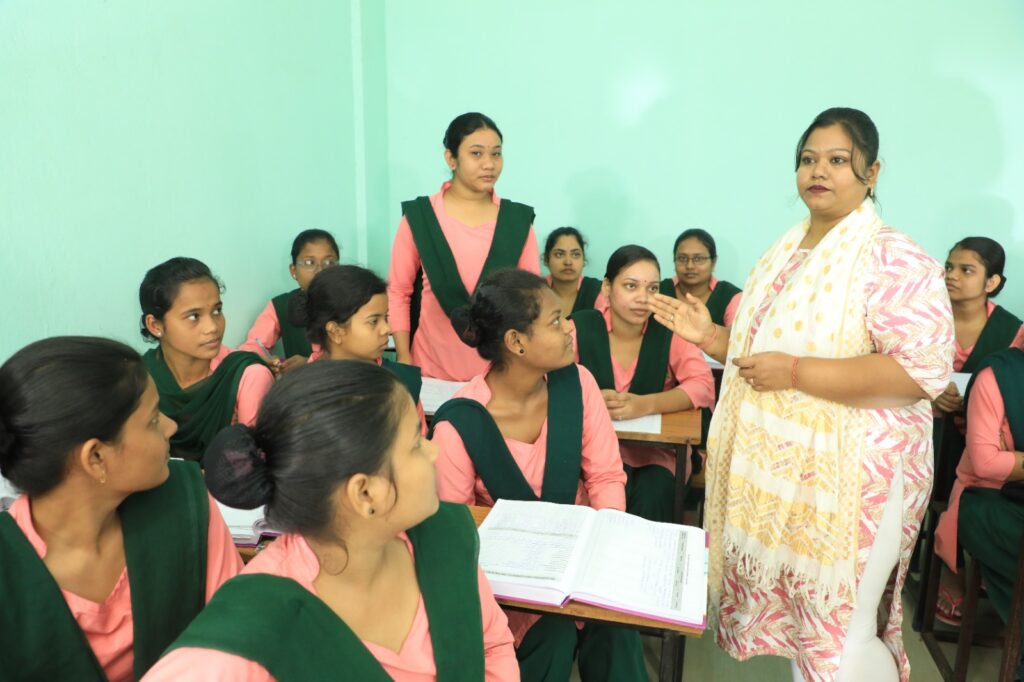
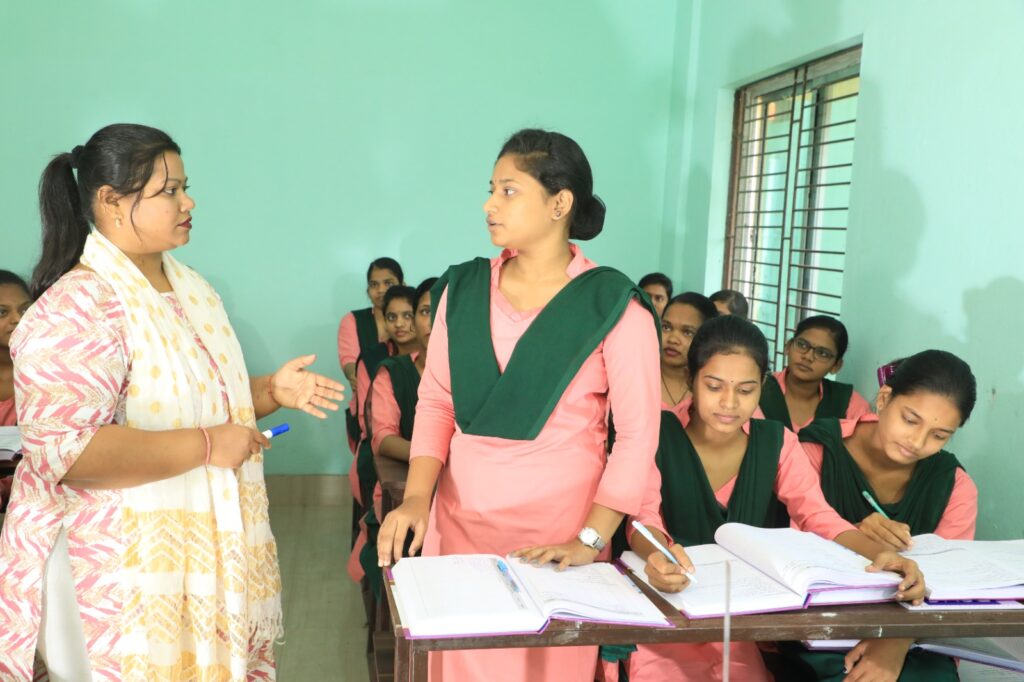
Laboratories
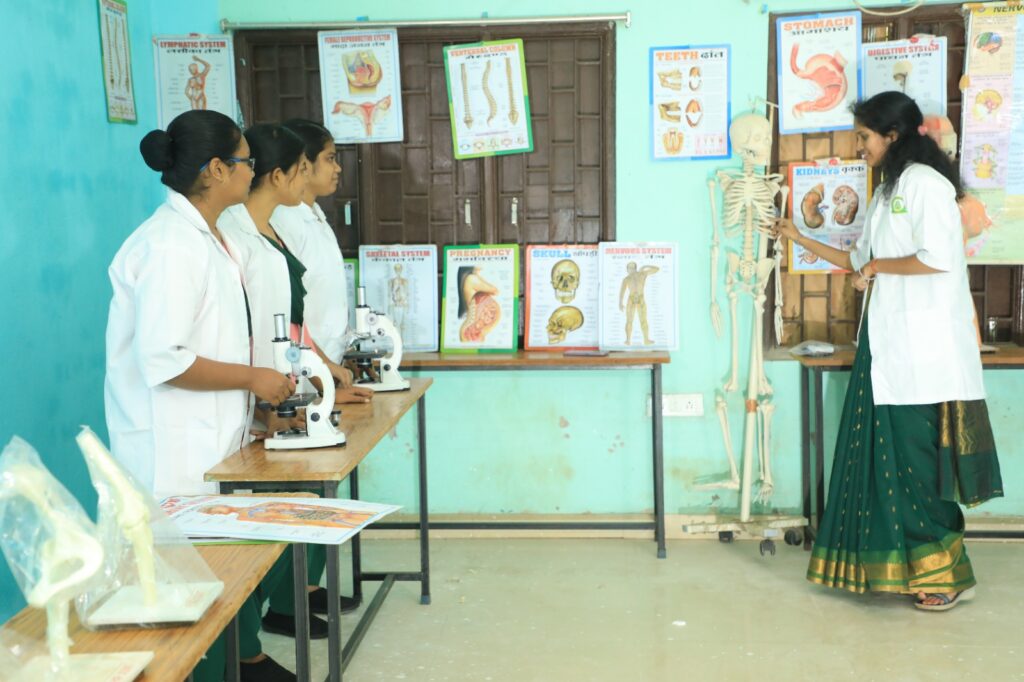
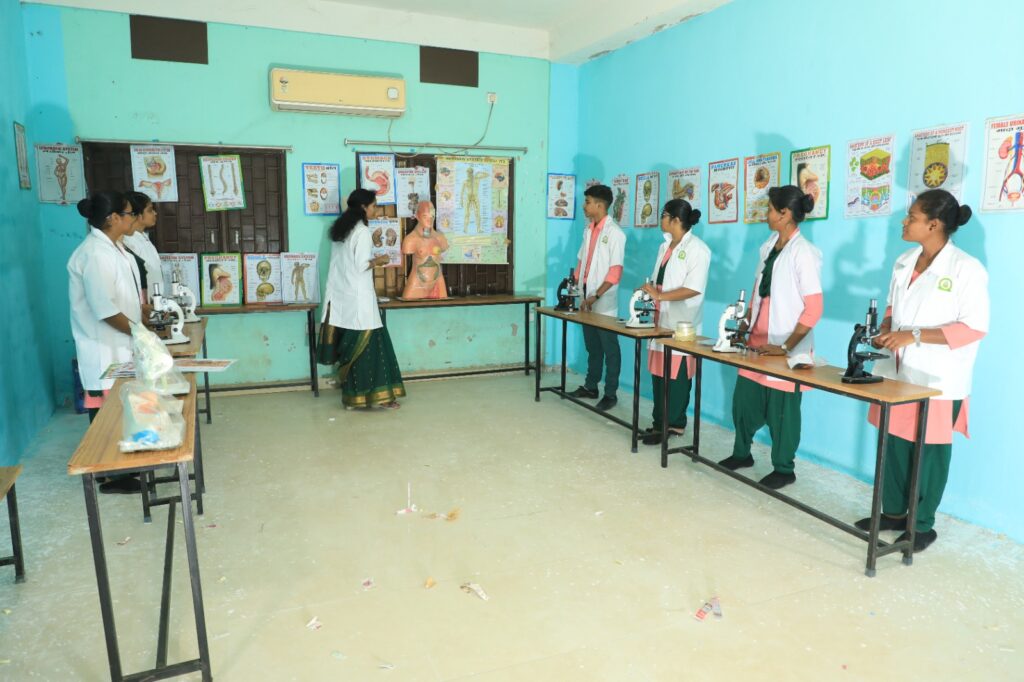
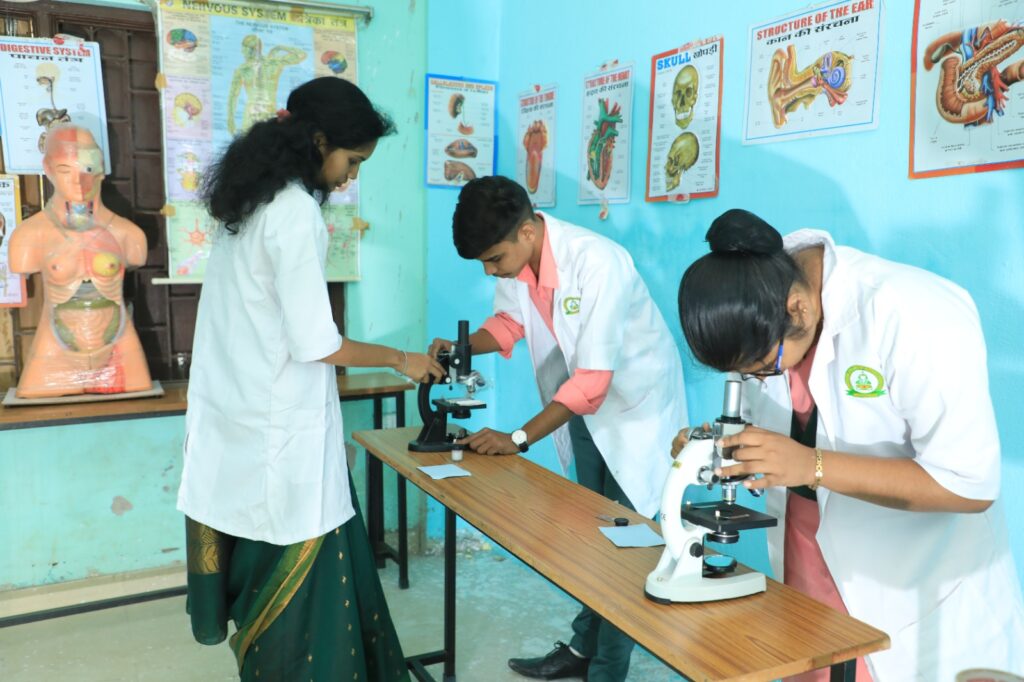
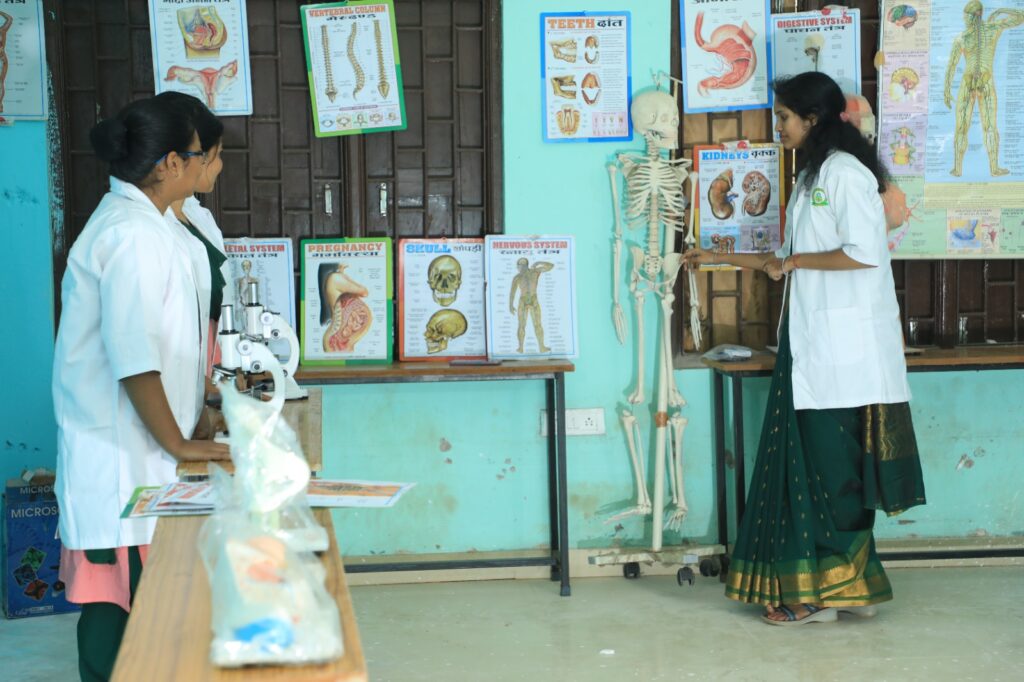
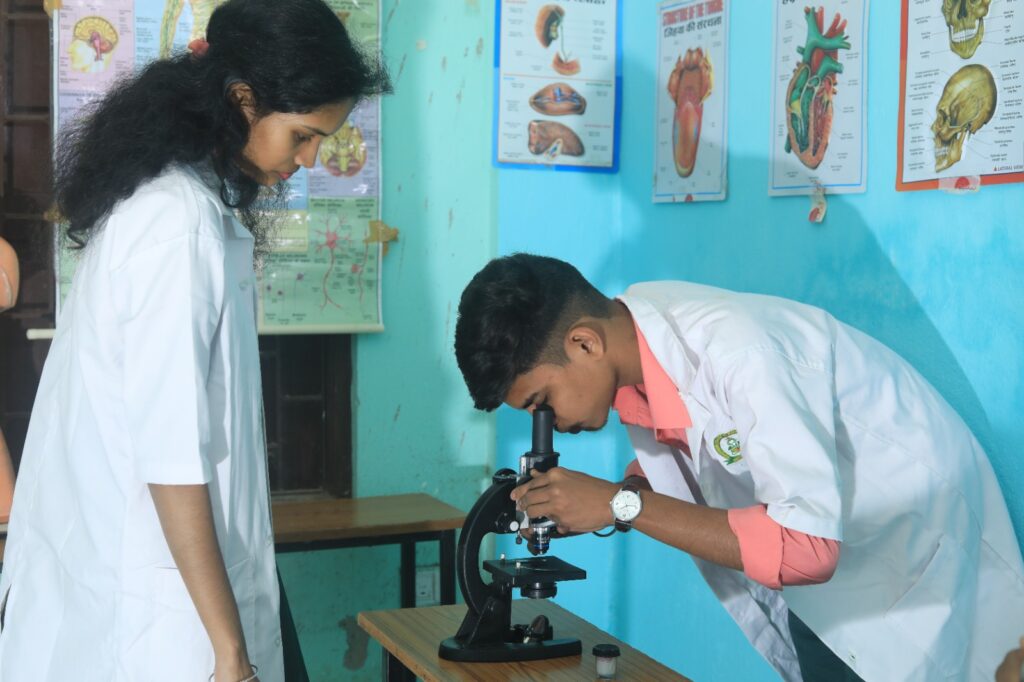
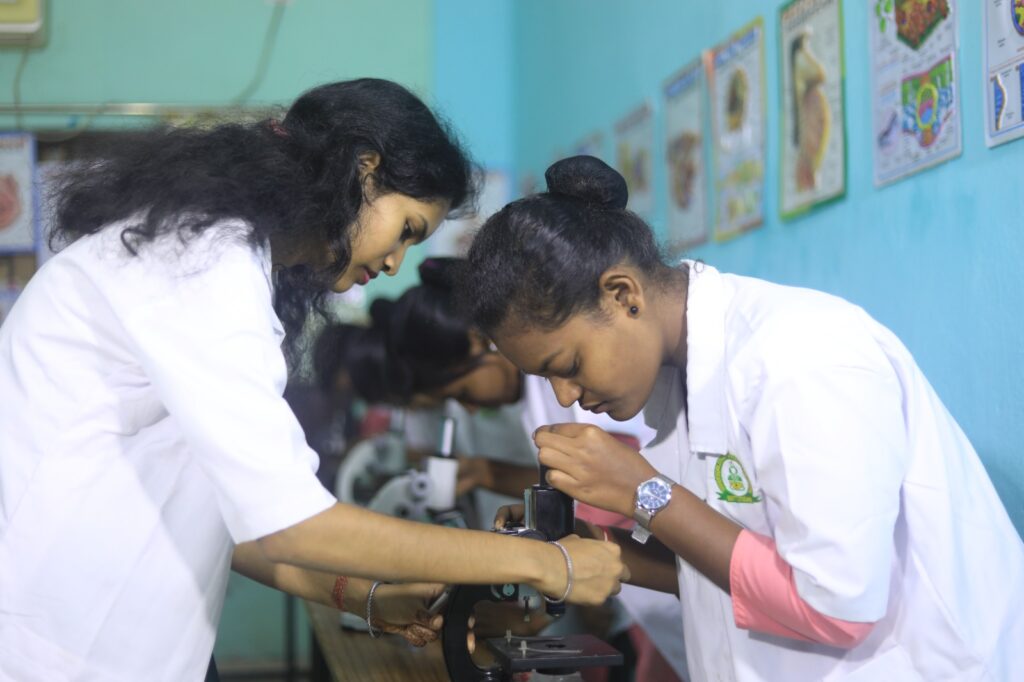
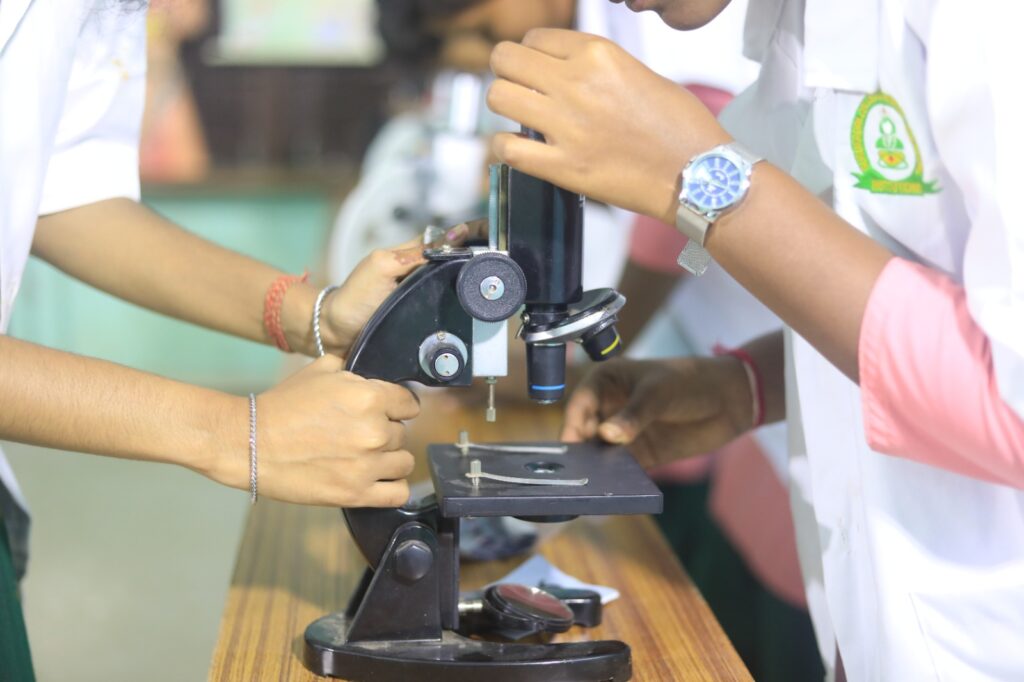
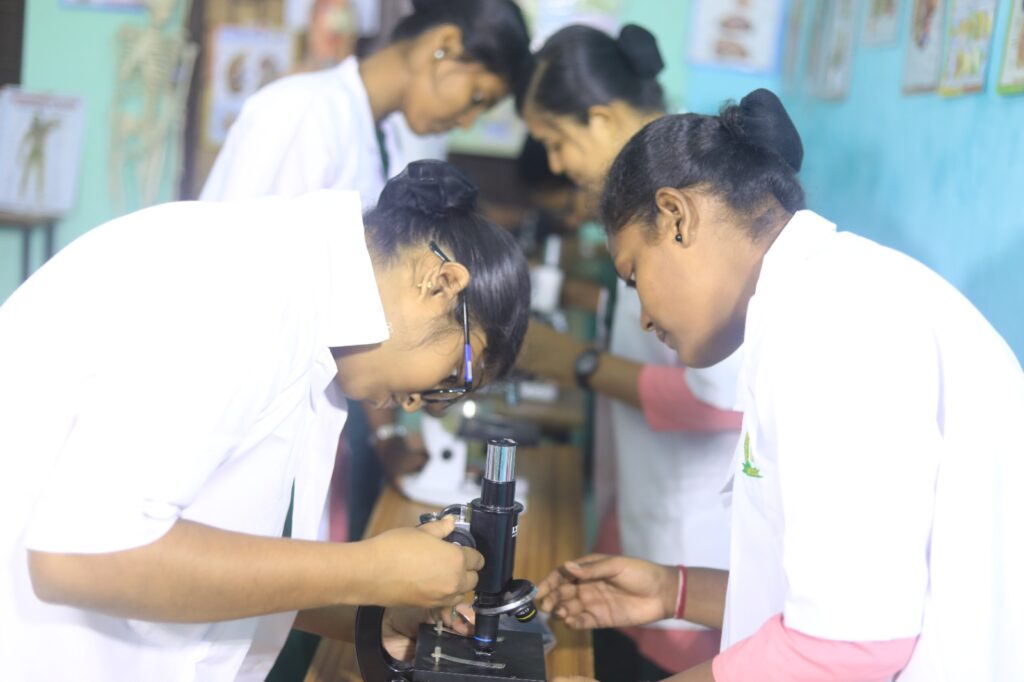
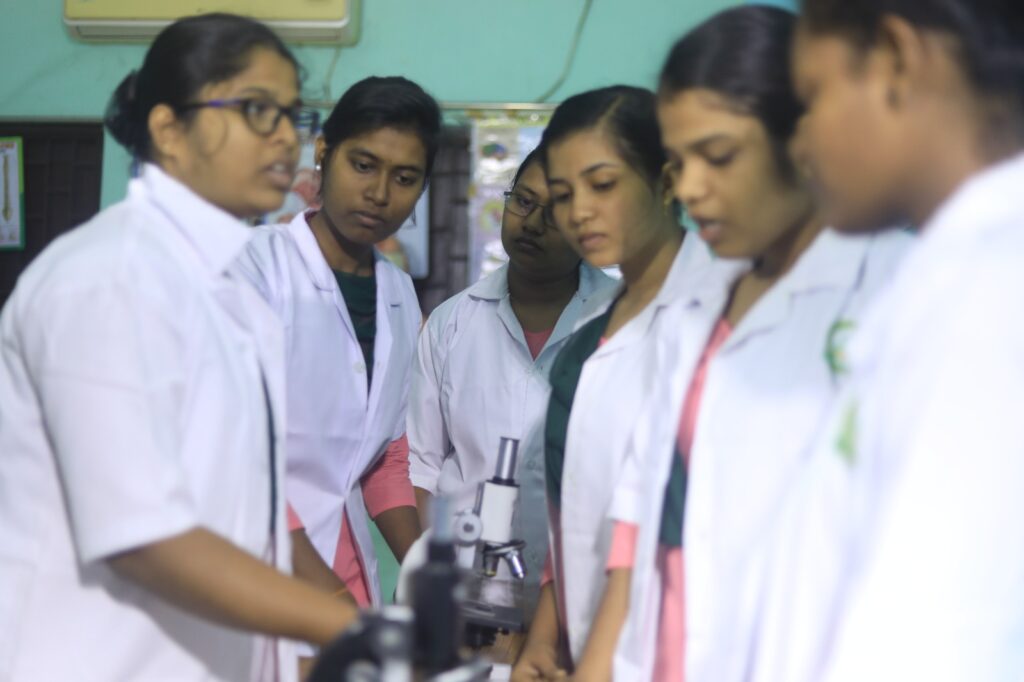
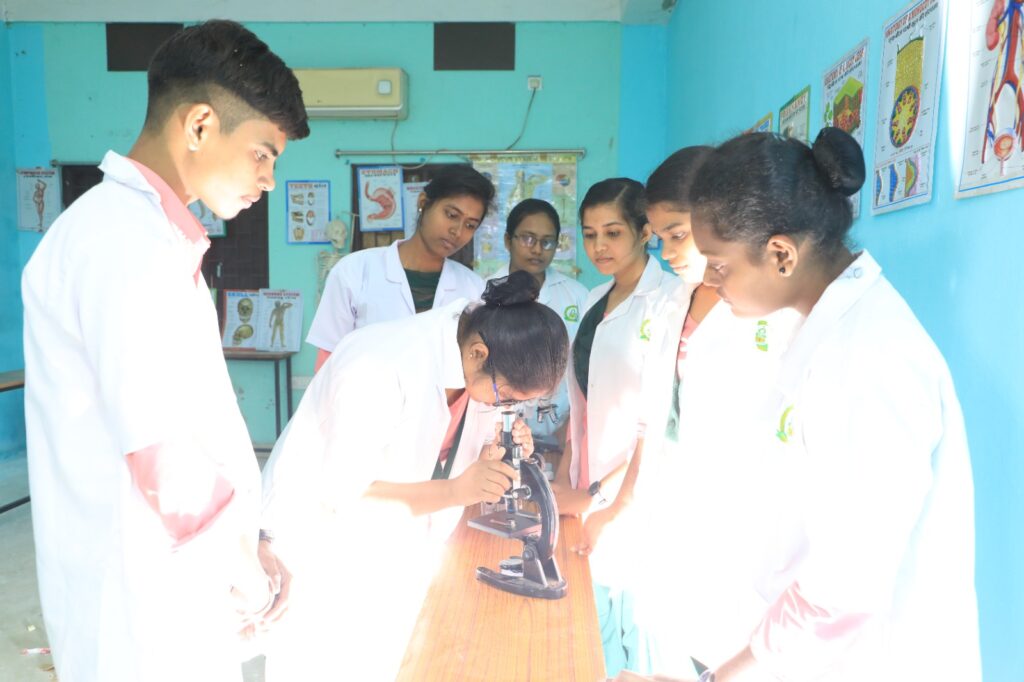
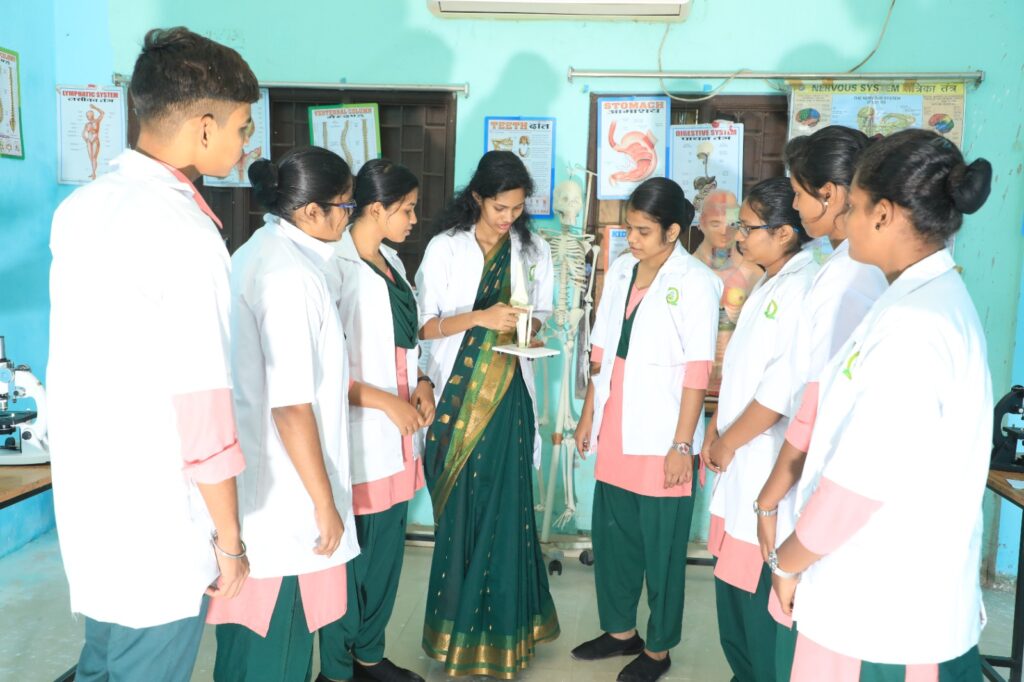
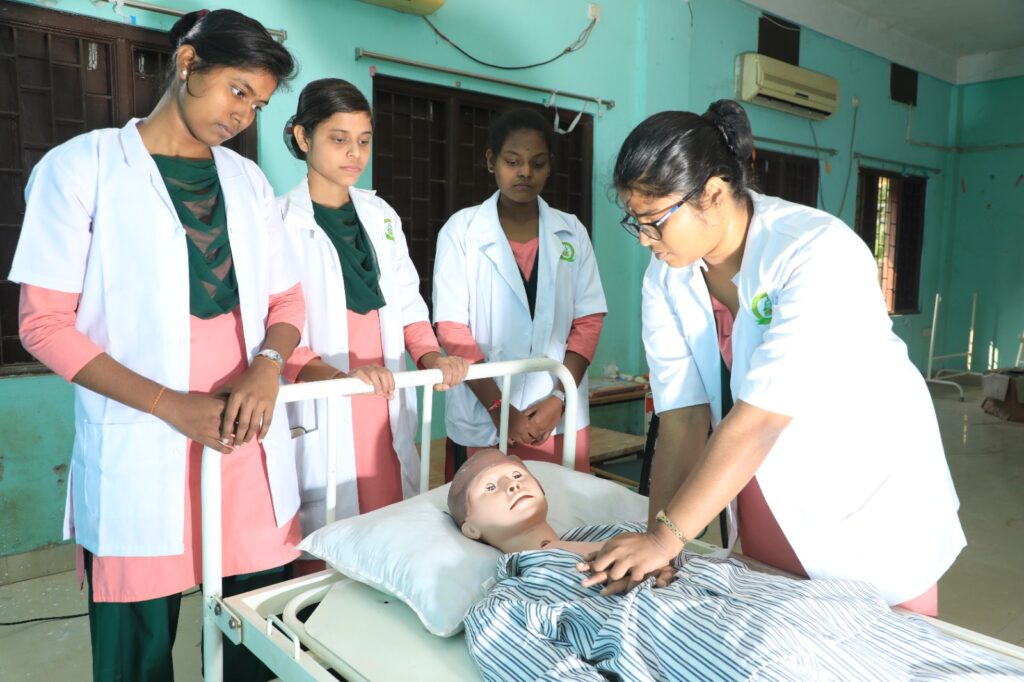
Library
